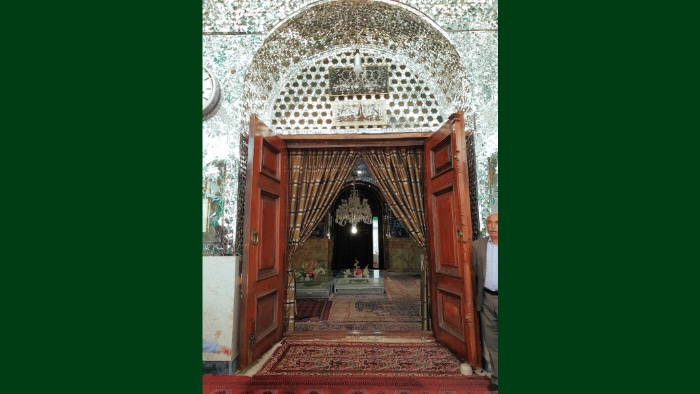Freedom of Belief—A Human Right under Pressure in Iran

The Dervish House of Worship in Beydokht; Sufi Gonabadi dervishes is a persecuted religious minority in Iran
International organizations, including the United Nations, have condemned the Islamic Republic several times for violating human rights and the rights of religious minorities.
Sanctions on those minority communities have ranged from imprisonment to being banned from university and from losing jobs and property to even being killed.
MvoicesIran talks with Said Mahmoudi, Professor Emeritus of International Law at the University of Stockholm to discuss religious and conscious rights in international law, violation of those rights in Iran, and the capacity of international organizations to curb such actions by States.
The rights to freedom of thought, religion, and conscience, which include the freedom to change religions or beliefs and to worship and practice religion, are clearly mentioned in Article 18 of the Universal Declaration of Human Rights and the ICCPR. The latter legally binds signatory countries, including Iran. Some jurists even say that these rights are “a mere utopia and they are supposed to make a difference.” What are the mechanisms that international organizations, such as the United Nations, can employ to promote Article 18 and the freedom of religion in practice?
– The contents of the Universal Declaration have found expression in the ICCPR, just to make sure that what was then (during 1960s) still considered by some States to be “political statements” would become legally binding. Article 18 in the ICCPR relating to freedom of religion corresponds to Article 18 of the Universal Declaration on the same subject. As such, its implementation at the national level is supervised by the Human Rights Committee, which is the supervisory organ of the Convention. The power of the Committee is restricted by receiving national reports of the governments and, under certain conditions, the individual complaints by citizens of the State Parties. The Committee can ultimately pronounce on the violation of a provision of the Convention. Such pronouncements have no legally binding effect but enjoy a great political and moral effect on the State that has been found in violation. The same can be said about the Human Rights Council and its pronouncement that [would] normally receive broad attention and damage the image of the convicted State.
Over the last four decades, the United Nations and human rights leading organizations, such as Amnesty International, have condemned Iran’s violation of the rights of religious minorities. Nevertheless, millions of people in Iran have been deprived of their basic rights, and several hundred have been jailed and even murdered for their religious beliefs. The Islamic Republic’s hardline policy has continued and even worsened. Can we conclude that the whole Universal Declaration of Human Rights remains just a powerless set of words if a state, such the Islamic Republic of Iran, continues to refuse to modify its own policy?
– The violations of the rights of religious minorities as guaranteed in various international law documents are regrettably not limited to Iran. This is a common pattern, particularly in Islamic States. Responsible UN entities have regularly criticized these countries for such violations. The fact is that such violations can, at best, be condemned by other States or UN [organisations] and NGOs, but such condemnations can very seldom be translated into concrete measures in defence of the violated rights. Violations of human rights, even the gravest ones, normally do not lead to anything more than hortatory political statements. In this respect, there is a similarity between human rights and environmental rights!
Freedom to worship and to assemble have been misunderstood by many people. According to several testimonies from people in religious minorities in Iran, even sometimes human rights activists or lawyers have a confused concept of the right to worship, and they even say that, as long as “you can go and pray at the corner of your room, then there is no problem”. Can we say that, according to international law and UN declarations, having buildings and places for worship is a basic right for every individual and religious minority?
– In my view, since non-discrimination before law is a basic human right, all people, irrespective of their race, colour, sex, language, religion, political or other opinion, national or social origin, property, birth or other status, should enjoy the same rights. Thus, there is no legal basis in international law for discrimination as regards access to [one’s] own buildings for prayers.
The Iranian State has accused many members of religious minorities who have taken part in peaceful assemblies to worship or practice their religion of “making propaganda against the regime” and has jailed them and/or confiscated their belongings. The Islamic Republic’s laws or interpretation of laws can contradict basic international norms of human rights and freedom of religion and have institutionalized discrimination against religious minorities and legally deprived them of their rights. How does international law contradict this situation that can be characterized as a “religious apartheid”?
– As I mentioned, any unjustified limitation on the exercise of those freedoms that are guaranteed in the Universal Declaration and the ICCPR, including of course the freedom of religion, is a violation of international law. Other states can use the mechanisms that are available in international law. If they consider the violations to be serious, they can introduce unilateral or multilateral (regional – international) sanctions against the violating state. These sanctions can vary from simple restrictions of relations with that state in certain areas to the full sanction of the rupture of diplomatic relations with that state. Violations of human rights are not always a priority for other states, and, in punishing the responsible state, other countries normally try to strike a balance with their many other interests, not the least of which are their economic and political interests.
